Archive
2021
KubaParis
Self-Service
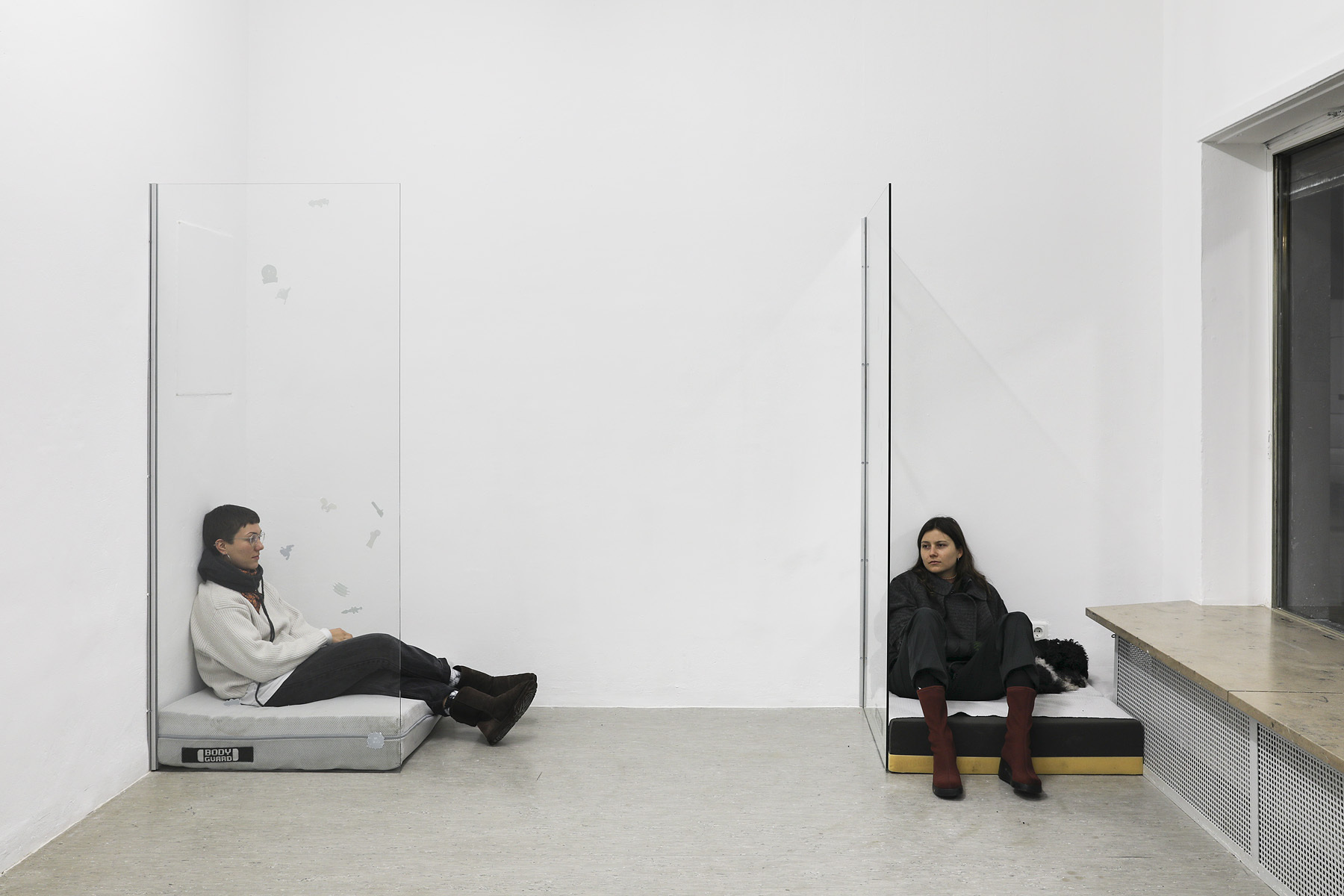
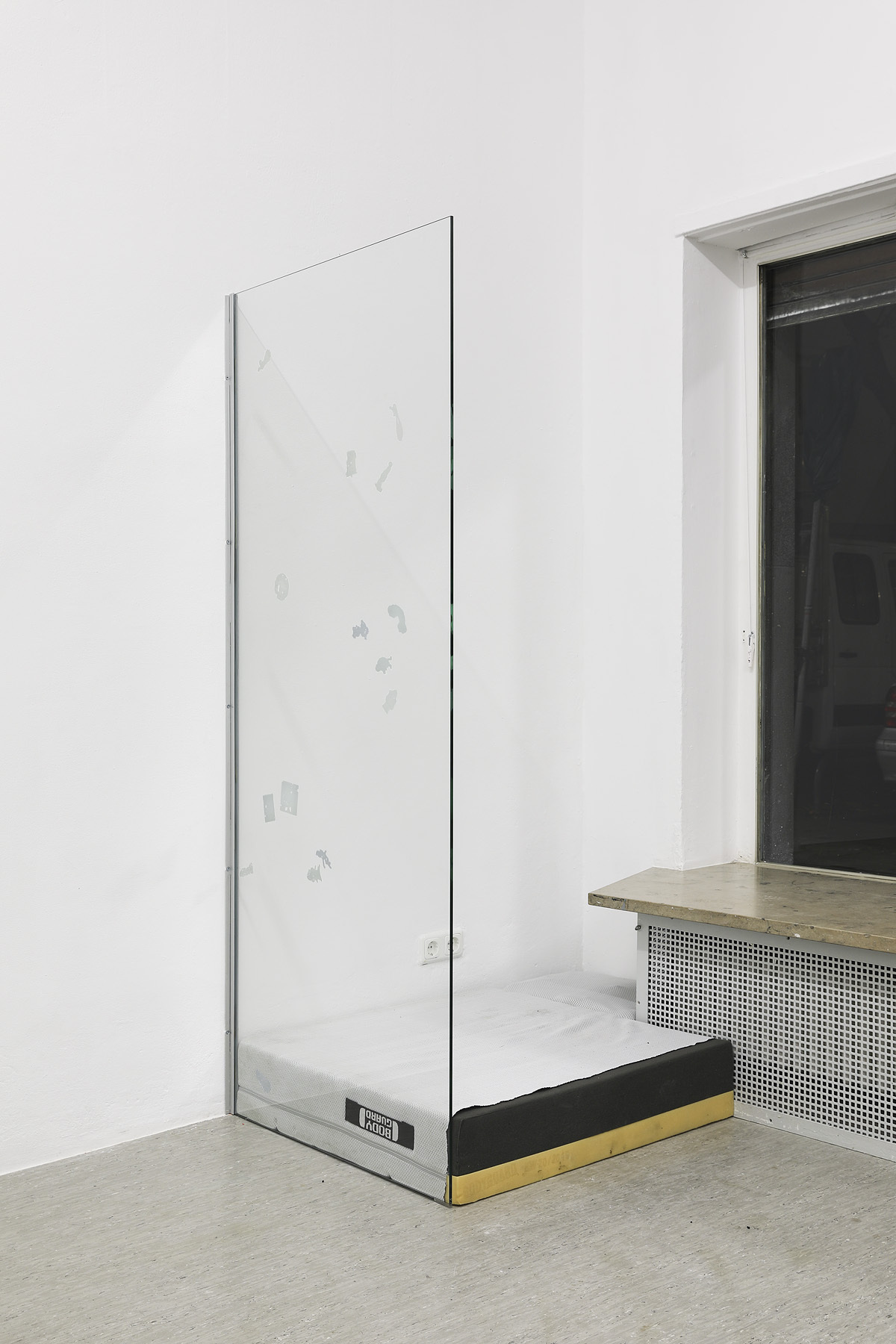
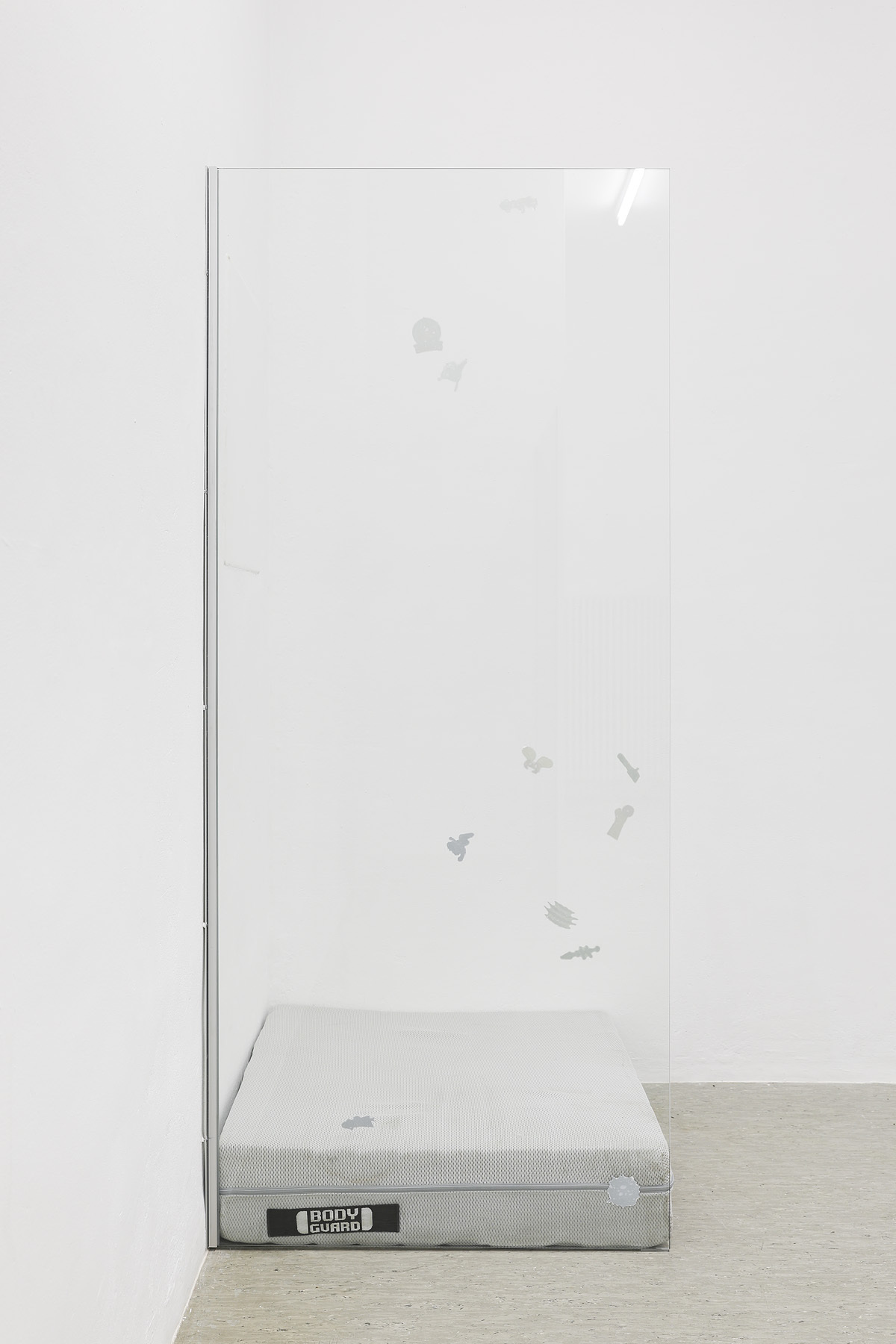
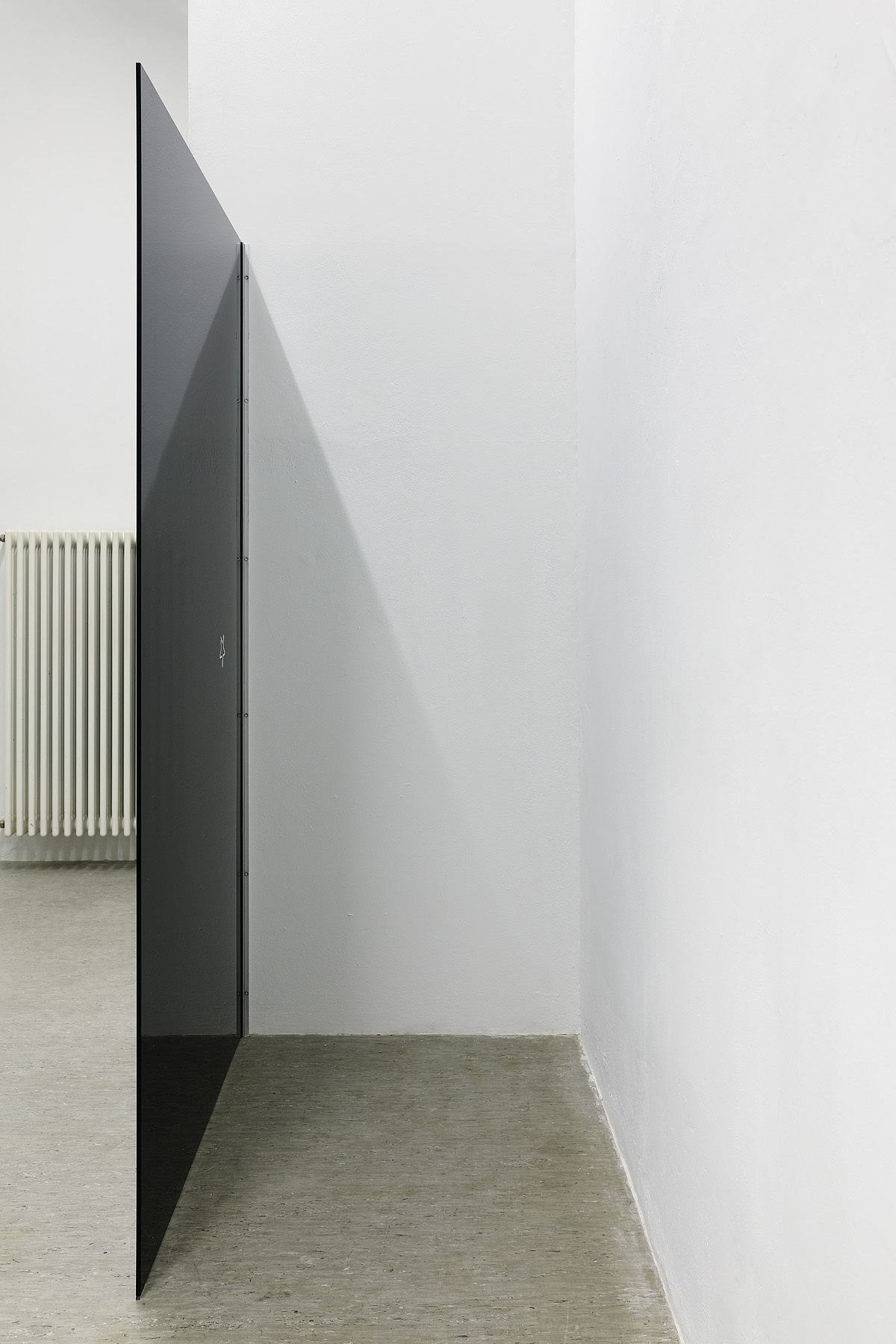
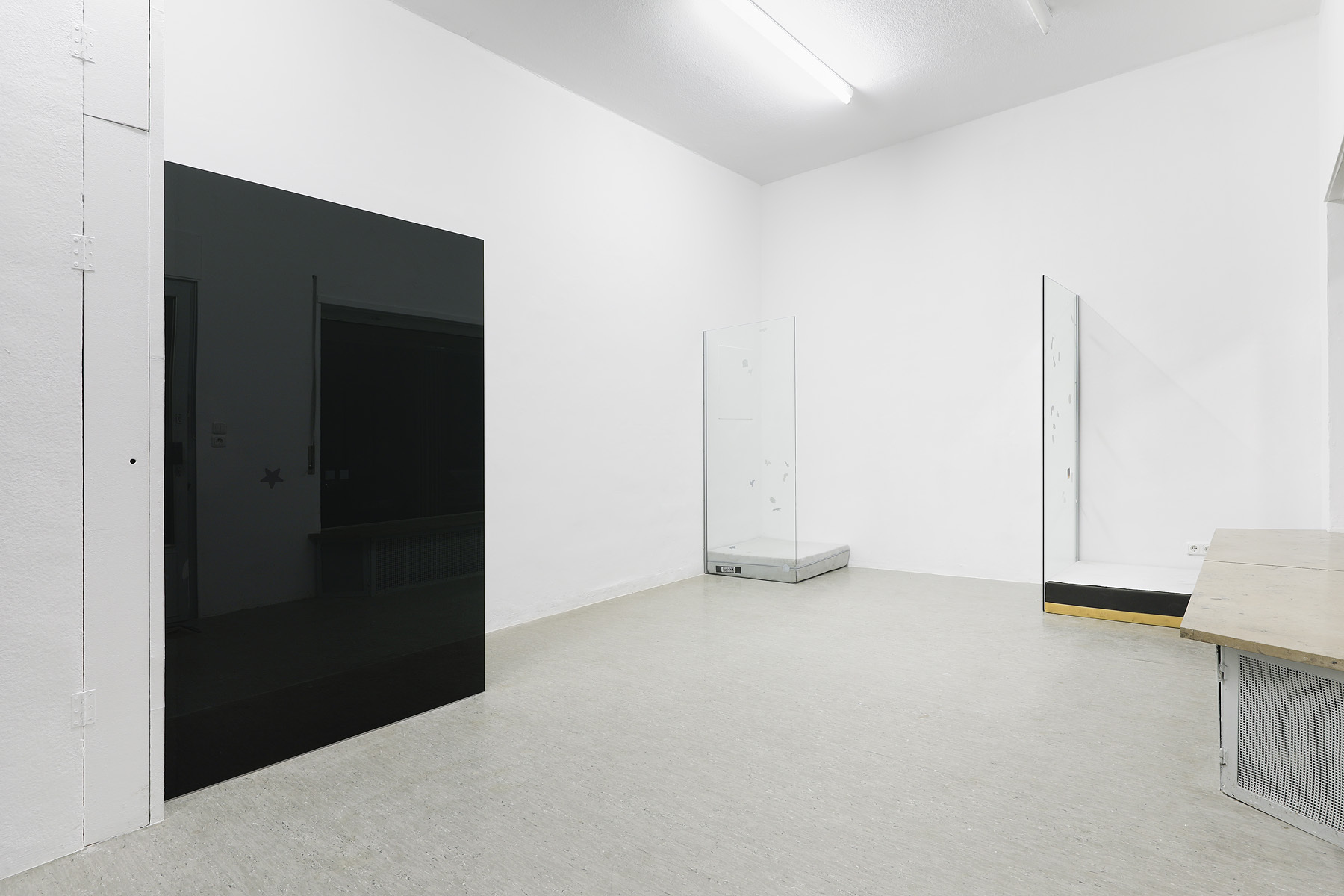
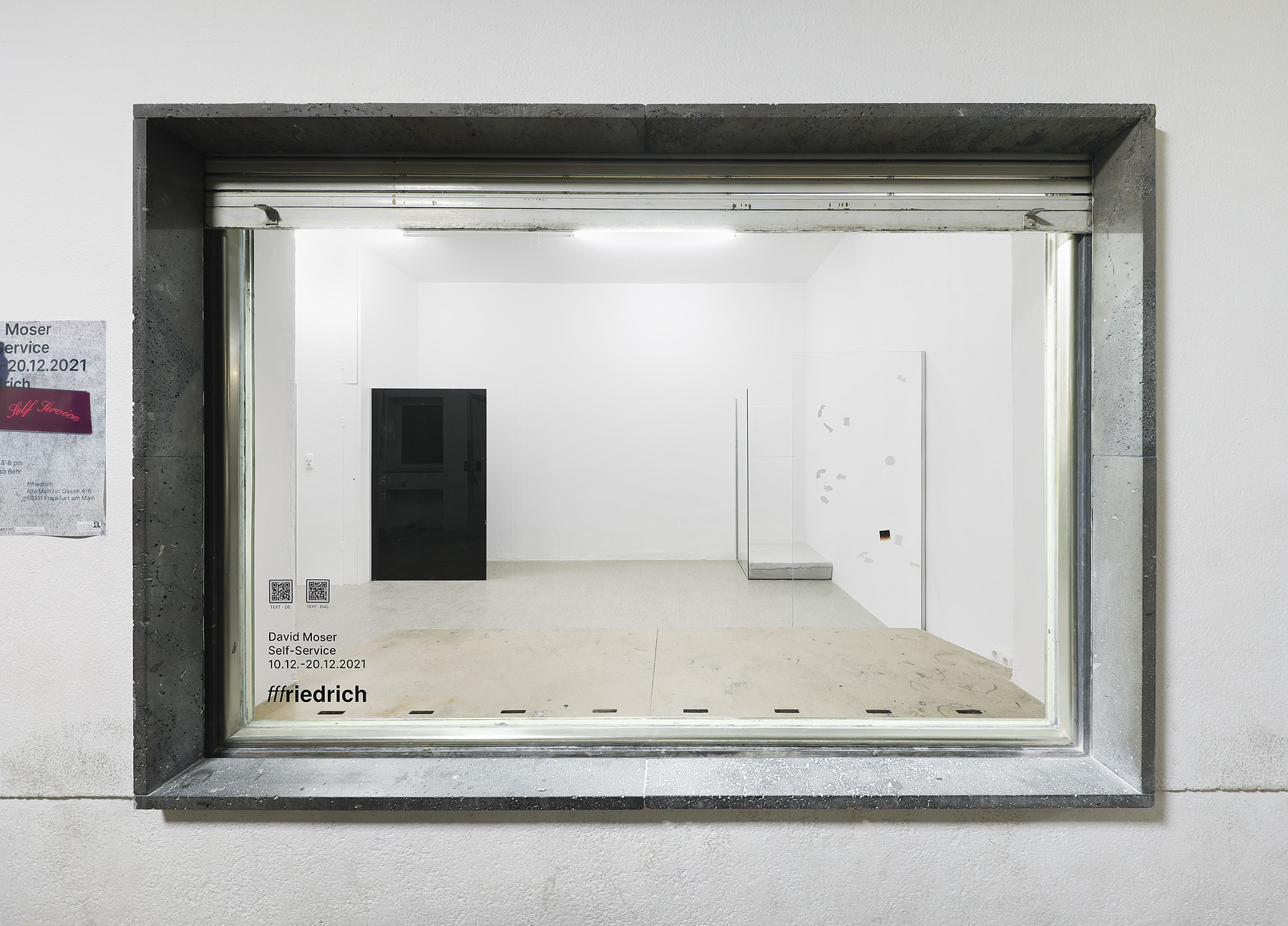
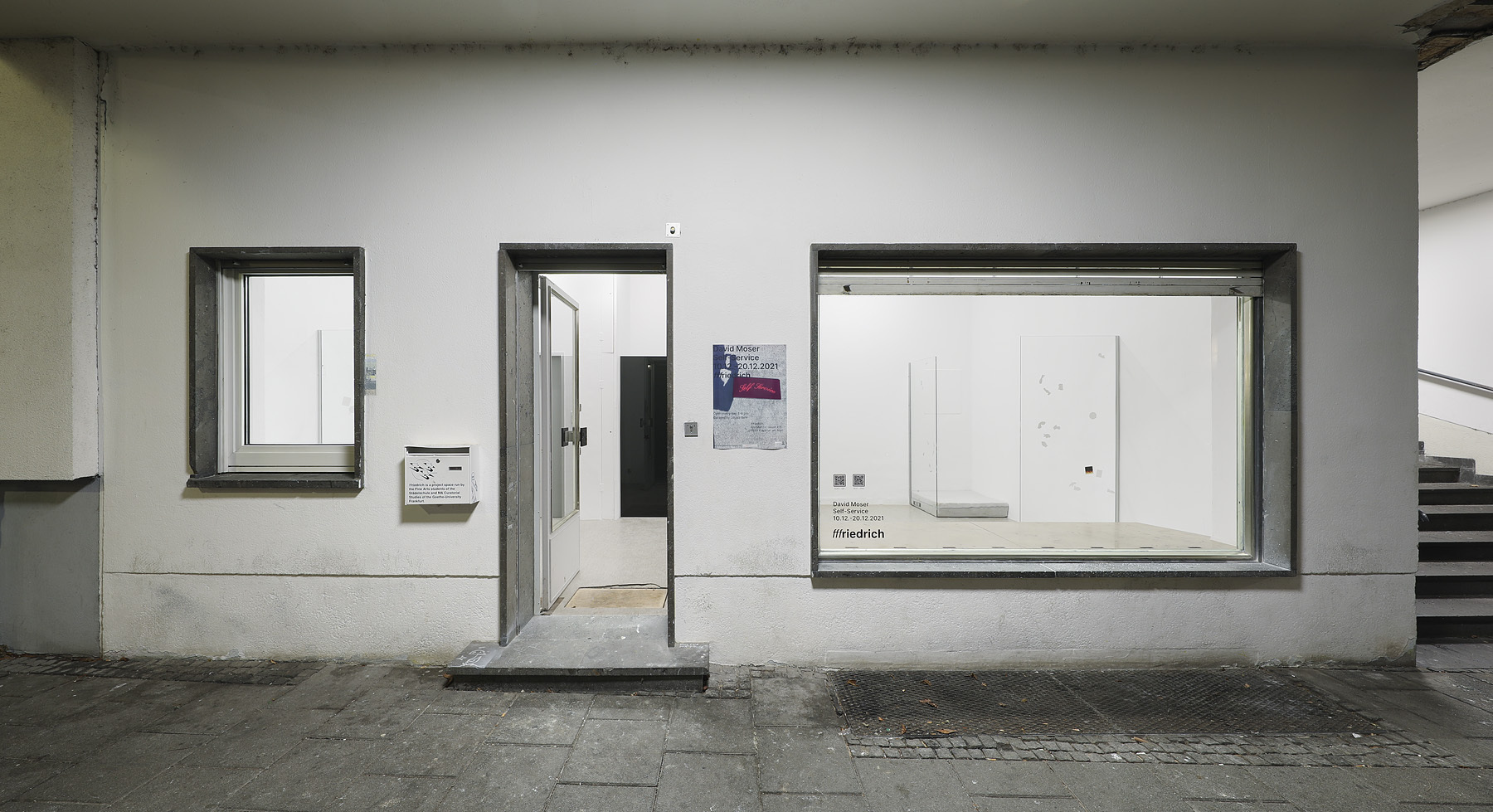
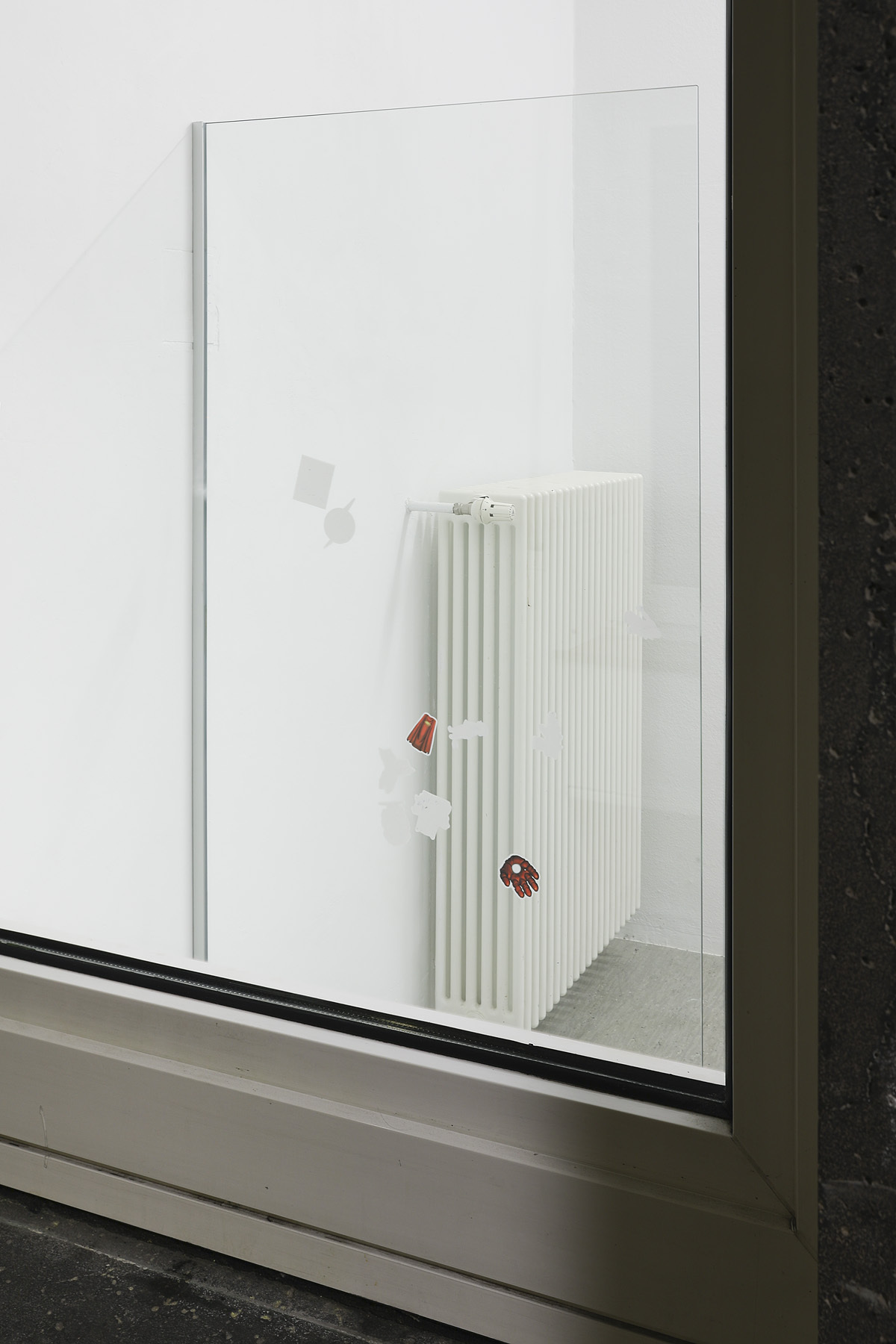
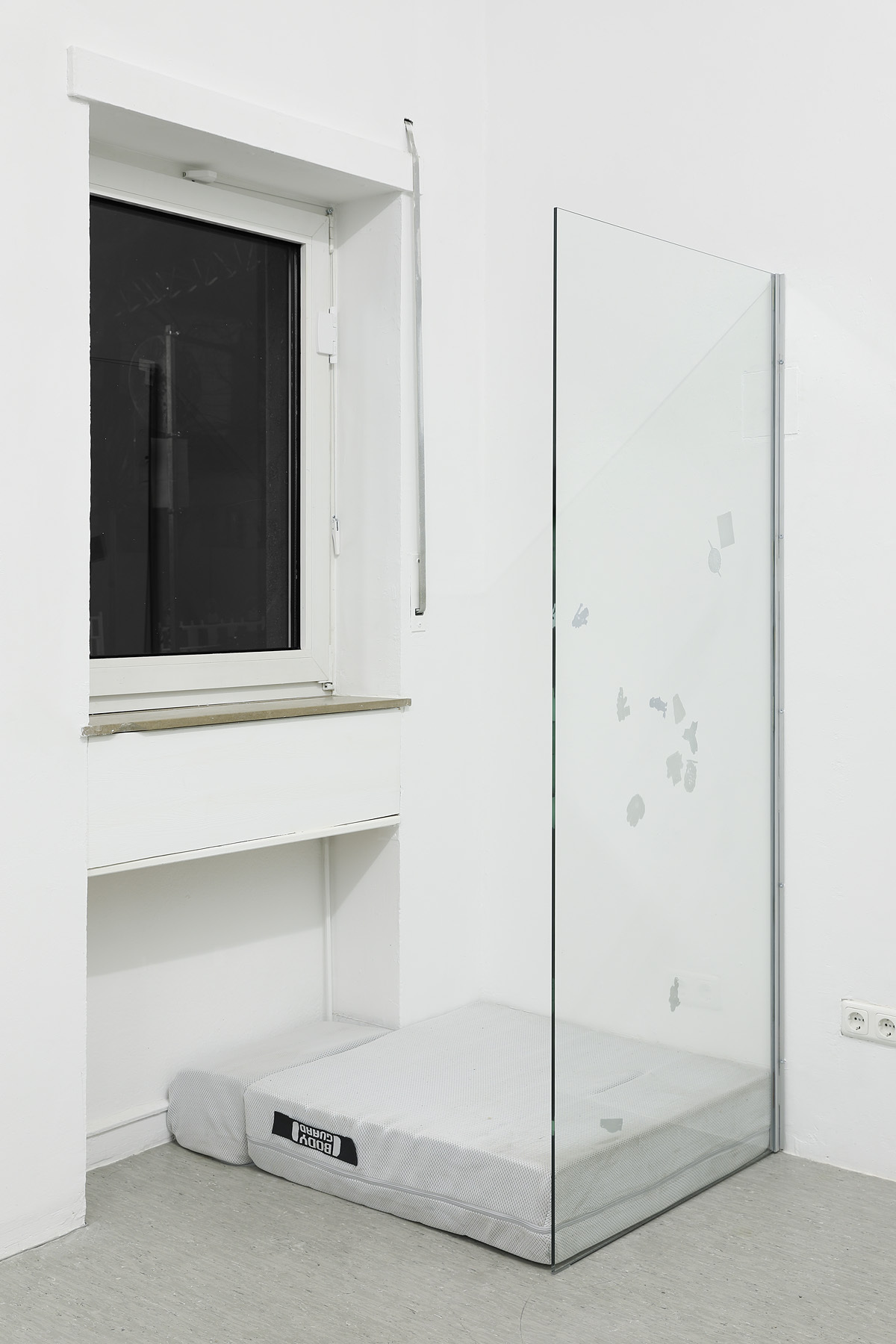
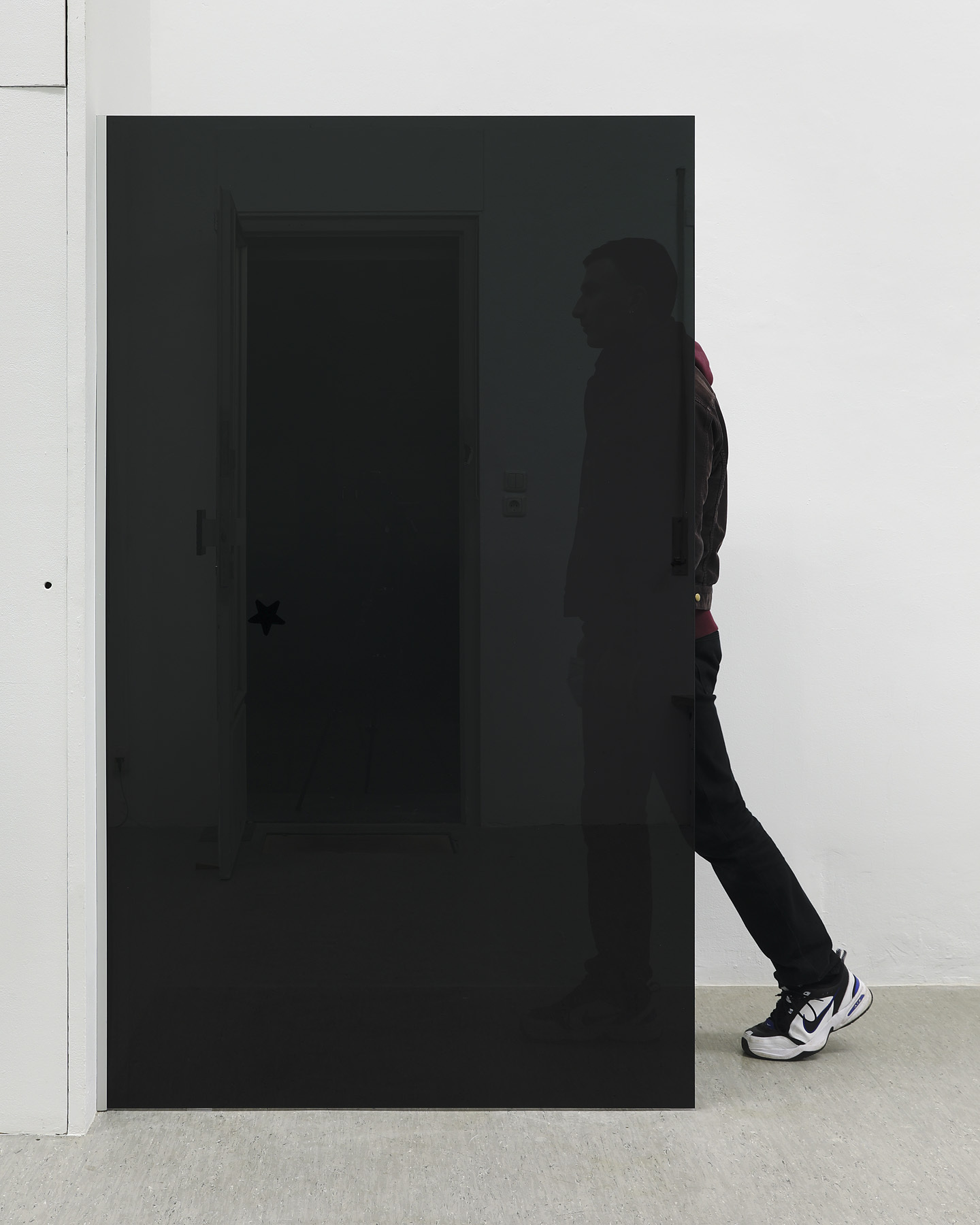
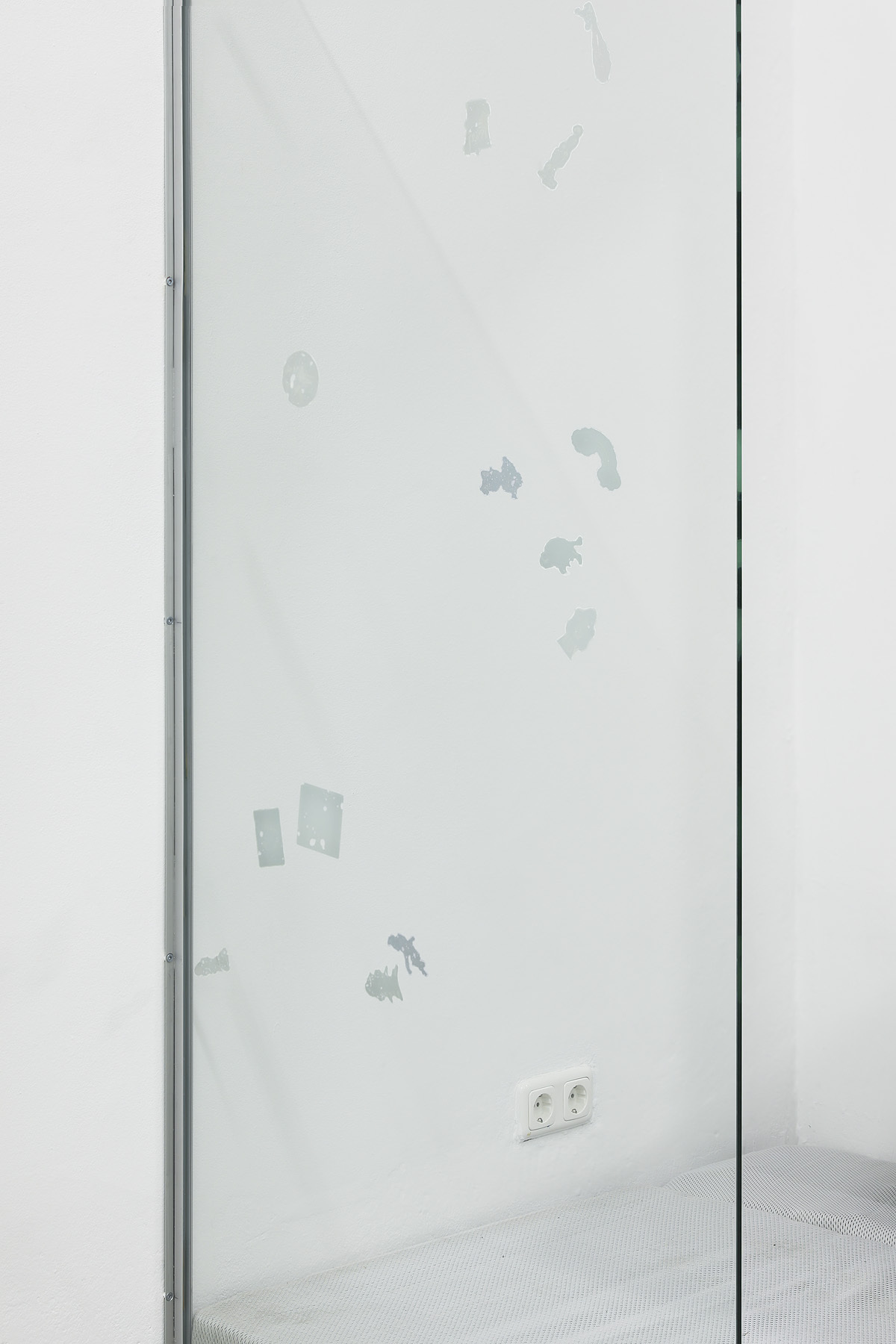
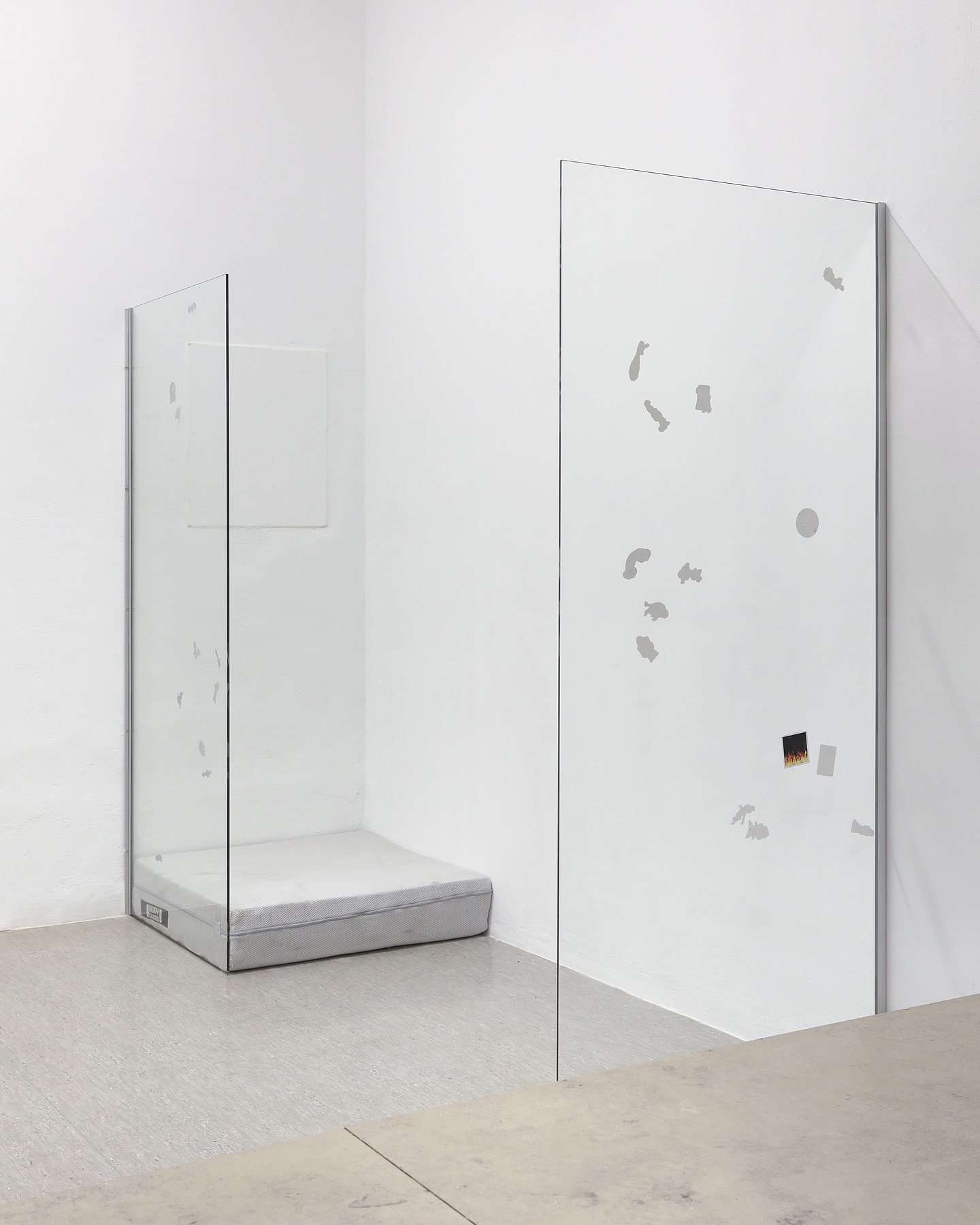
Location
fffriedrichDate
09.12 –19.12.2021Curator
Louisa BehrPhotography
Ivan MurzinText
Self-Service
White walls, open blinds, and lighting that has barely changed (only some of the clinically sober neon lights have been turned off): the exhibition space fffriedrich was left almost in its original state for Self-Service. Just the dark-coloured glass wall and the mattress parts are conspicuously present because the other transparent glass walls almost try to pretend that they are not there. Only the pasted stickers, whose motifs are mostly erased with Tipp-Ex so that just the outlines remain visible, reveal them. David Moser‘s cell-like constructions are installed in the corners of the room. Every normal room has corners–the term normal is deliberately used here, which, and above all its deconstruction, is significant in the artist‘s practice. What exact associations David Moser wants to evoke in Self-Service, however, remains open. Is it perhaps more about the visitors and their physicality or an interpretation of the glass walls and mattresses?
The first thing visitors see in Self-Service is a reflection of themselves. In the confrontation of their own subject, they thus have a quasi-performative function within the exhibition structure. Although it is possible to look through all the corner cell structures and the large windows of the exhibition space, there are always reflections in which one‘s own body and other bodies moving through the exhibition can be seen. Questions arise about what is inside and what is outside, about being locked in and locked out. The direction of the respective screw bar gives a hint and possible answer to these questions. At some moments, the composition is reminiscent of a labyrinth or a hall of mirrors. The reflections distort, deceive as well as reflect and at the same moment lay claim to truthfulness: everything is visible.
One work within the installation stands out in particular: it is entitled Blind Corner Cell and consists of an apparently opaque, dark-coloured disc. The acronym of the title is BCC and is reminiscent of the abbreviation for a blind copy when sending an e-mail, an invisible presence to the recipient. David Moser alludes to power relations and the idea of a digital panopticon. In such a panopticon, we are constantly fed information that we have not even consciously sought. The only reason for this is that we can hardly protect ourselves from being constantly monitored in the digital world. Philosopher and cultural scientist Byung-Chul Han writes: „The internet of things simultaneously completes the transparency society, which has become indistinguishable from a surveillance society.” Another feature of this modern society is the expectation of a permanent state of efficiency of an individual. The size of the cells is also designed for a single person–and this is not only due to the standard norm for shower walls, which is 200 cm high and 85 cm wide. Likewise, the mattress sections labelled Body Guard leaves little for more than for one person. The isolated body standing in the centre is not only exposed but also constantly monitored in a figurative sense–within David Moser‘s installation both in the actual and physical sense.
The Blind Corner Cell offers what appears to be the only hiding place–to be there without others noticing. But only apparently. In Self-Service, David Moser takes up methods from his previous artistic practice: He uses mass-produced commodities, often designed according to certain norms, and then reverses and changes existing frames of reference. The focus here is on the absence of the human body and the idea of how it is nevertheless represented by certain norms and can escape them.
Text: Louisa Behr
Louisa Behr